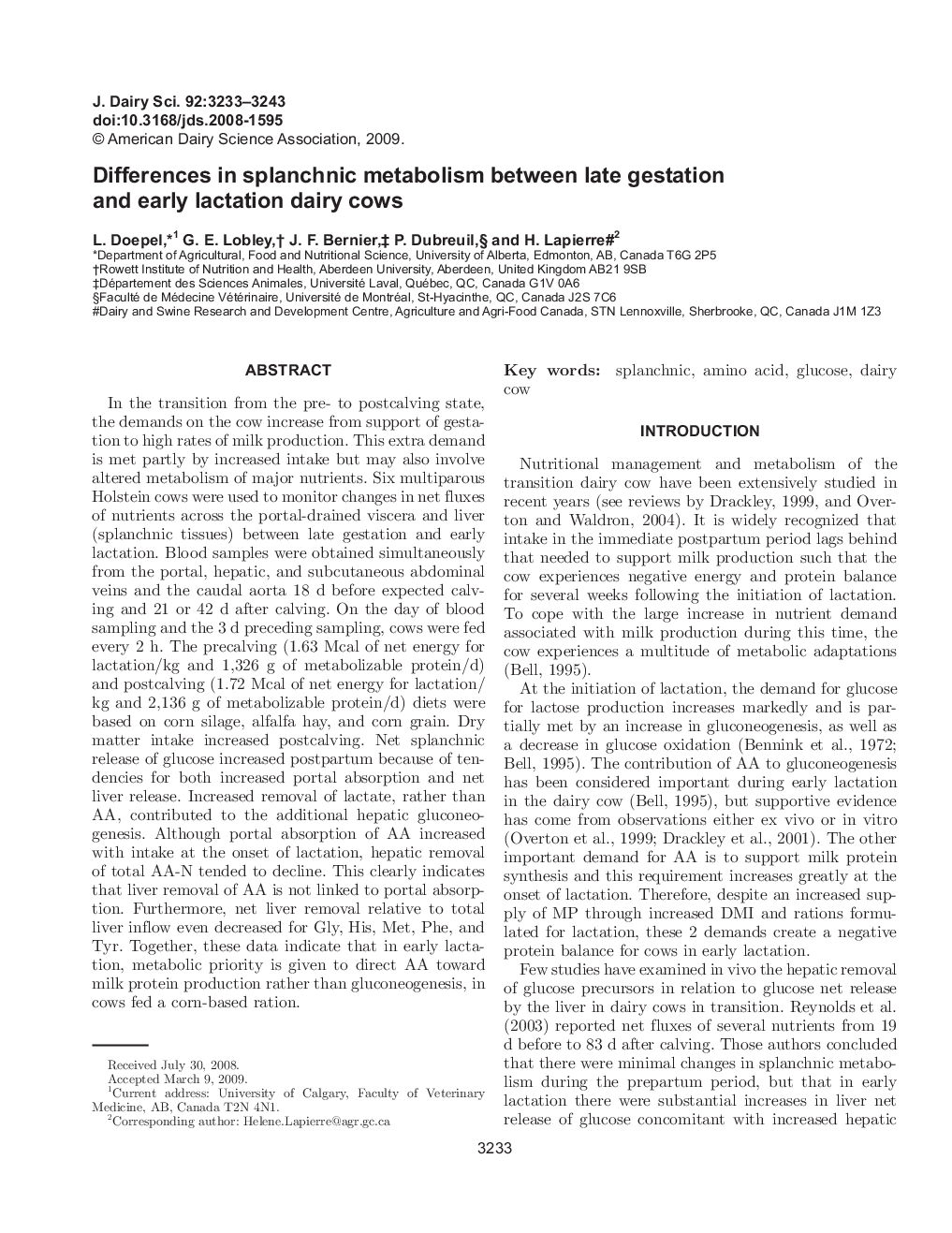| Article ID | Journal | Published Year | Pages | File Type |
|---|---|---|---|---|
| 2439689 | Journal of Dairy Science | 2009 | 11 Pages |
Abstract
In the transition from the pre- to postcalving state, the demands on the cow increase from support of gestation to high rates of milk production. This extra demand is met partly by increased intake but may also involve altered metabolism of major nutrients. Six multiparous Holstein cows were used to monitor changes in net fluxes of nutrients across the portal-drained viscera and liver (splanchnic tissues) between late gestation and early lactation. Blood samples were obtained simultaneously from the portal, hepatic, and subcutaneous abdominal veins and the caudal aorta 18 d before expected calving and 21 or 42 d after calving. On the day of blood sampling and the 3 d preceding sampling, cows were fed every 2Â h. The precalving (1.63 Mcal of net energy for lactation/kg and 1,326Â g of metabolizable protein/d) and postcalving (1.72 Mcal of net energy for lactation/kg and 2,136Â g of metabolizable protein/d) diets were based on corn silage, alfalfa hay, and corn grain. Dry matter intake increased postcalving. Net splanchnic release of glucose increased postpartum because of tendencies for both increased portal absorption and net liver release. Increased removal of lactate, rather than AA, contributed to the additional hepatic gluconeogenesis. Although portal absorption of AA increased with intake at the onset of lactation, hepatic removal of total AA-N tended to decline. This clearly indicates that liver removal of AA is not linked to portal absorption. Furthermore, net liver removal relative to total liver inflow even decreased for Gly, His, Met, Phe, and Tyr. Together, these data indicate that in early lactation, metabolic priority is given to direct AA toward milk protein production rather than gluconeogenesis, in cows fed a corn-based ration.
Keywords
Related Topics
Life Sciences
Agricultural and Biological Sciences
Animal Science and Zoology
Authors
L. Doepel, G.E. Lobley, J.F. Bernier, P. Dubreuil, H. Lapierre,
